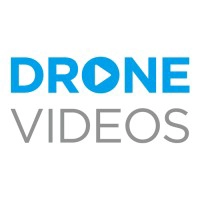
One of the most tedious jobs of being a dog owner is having to clean up piles of waste. While most dog owners are responsible, many choose to leave their dog’s poop in public spaces. Besides the obvious problems of dog poo littering public spaces being dirty, smelly, and gross, it poses health risks too. Dog feces contain parasites, worms, and bacteria that can be transmitted to other pets and people. Parvovirus, a highly contagious pet virus, is transmitted through fecal matter, as well as coronavirus. A company in the Netherlands decided to do something about neglected dog piles in public spaces.
Founded by Gerben Lievers, Tinki.nl is a home for everything about dogs. It is a place to compare and purchase all dog supplies, find out about local adoptions, breed information, register for training classes, and everything needed to have a happy and healthy relationship with your dog. The website’s FAQ tab has a section dedicated to picking up after dogs. In the Netherlands, people have to pay a dog tax, so many falsely assume this covers cleaning up dog waste. This is not the case, but rather the responsibility of the dog owner. Gerben, like many dog owners, has become fed up with those who do not clean their dog’s business. “We hear a lot of people complaining about dog poo,” Gerben said. “One day I decided to try and think of a way to help solve the problem.”
“I was at an entrepreneur evening, and after the show, I got talking to someone who was working in the drone business,” Gerben explained. “We ended up talking about dog poo, and I asked him how he would consider solving it with drones. We agreed to meet up again and to go to the drawing table to try and come up with a solution for this big problem. On paper it was perfect. Then we built a prototype, and it actually worked!” The person Gerben met with was a representative from Space53 based out of Enschede, an area of the Netherlands aiming to become the epicenter of European drone technology. As one of the EU’s dedicated drone development centers, “Space53 bundles governments, knowledge institutions, aid workers and companies into a drone innovation cluster and strengthens the ecosystem by creating the preconditions for successful development and application of unmanned systems,” states the company website.
Working to meet Gerben’s wish for a dog poop-free Netherlands, Space53 came up with a 2 part solution. The first part consists of a drone with a thermal imaging camera. The drone would be flown periodically over designated public spaces to scan the ground for heat signatures left by piles of dog waste. The aerial drone then sends GPS coordinates to a ground drone that acts like a Roomba to vacuum up the mess. Gerben said there is still a lot of work to do, such as possibly uploading a database of poop images to the drone to recognize piles that may have lost their heat signature. There is also the matter of getting municipal support and approval. The biggest hurdle Gerben has faced is people thinking it is all a hoax. “When change appears, people always think like this,” he said. “We’ve had a lot of questions from people asking if this is an April Fool’s joke. It’s not. I hadn’t even thought about that. Technology makes our lives better. This is an example of one way it can do it.”



